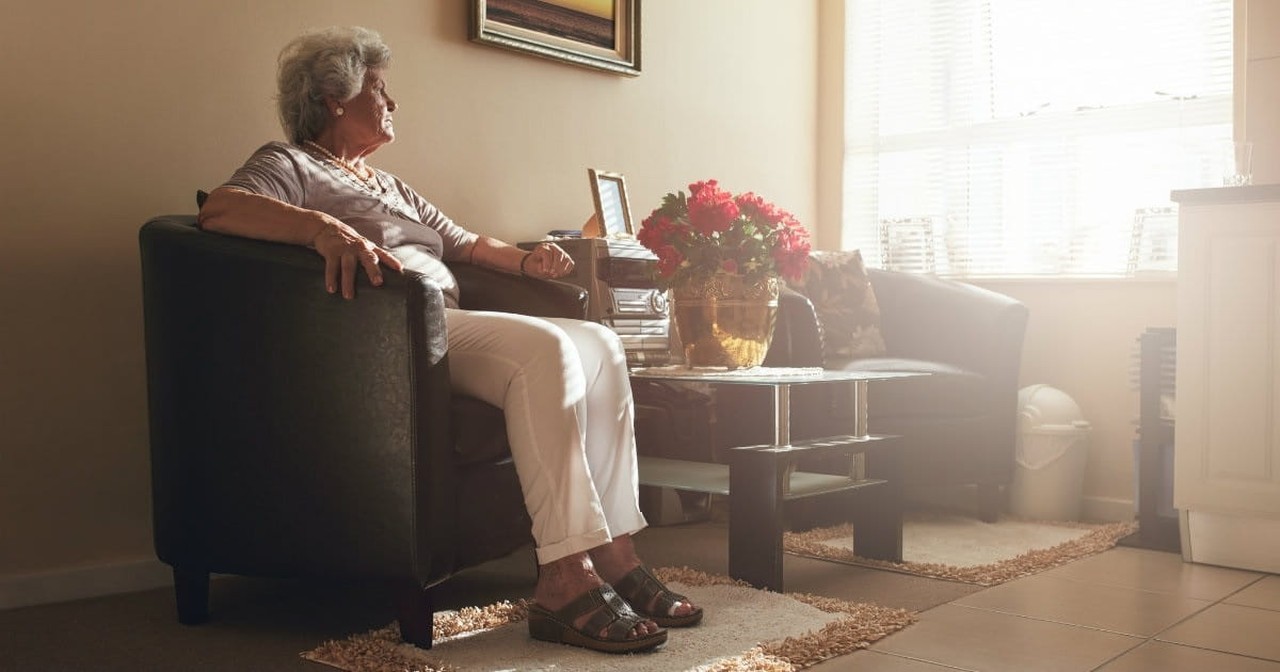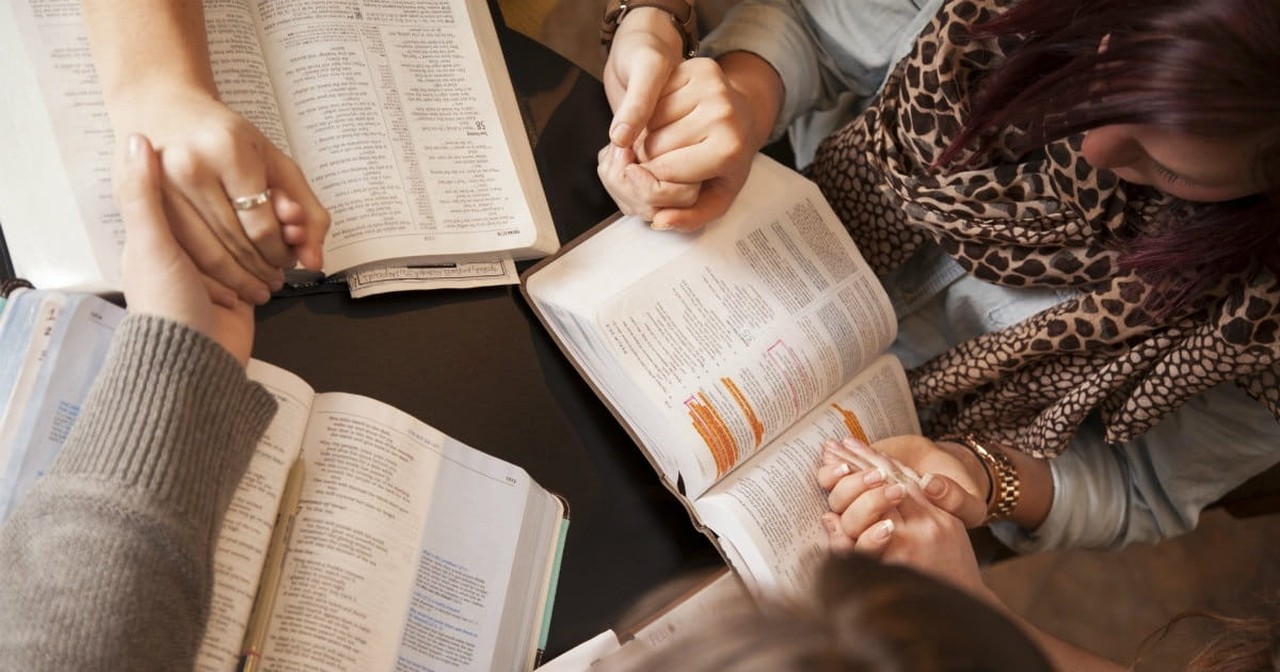9 Groups of People Your Church Isn’t Reaching

Having a church family is an important part of your walk with Christ. We need that spiritual rejuvenation every Sunday, and the relationships with people who will encourage us to grow in our knowledge of God’s word and to be more Christ-like. We need our churches because we need a place where we can be around like-minded people and a place where we can be challenged to strengthen our faith.
However, that isn’t the only purpose for a church. A church is also supposed to reach people for Christ, and while most of our churches are doing a great job of that, there could be some people groups that we aren’t reaching as well as we could be.
As you read about these 9 groups of people, ask yourself- could our church do better at reaching these people? Could I do better reaching out to these people, being more aware of them as I come and go from church?
Image Credit: Thinkstock.com
1. Shut-ins

1. Shut-ins
SLIDE 1 OF 10
I feel like this is something churches used to do that has kind of fallen off a bit. When I was a little kid, my church had a ministry that reached out to these people and helped them by bringing groceries, having a bible study with them, or just giving them someone to talk to for a little while. Maybe I’m wrong, but it feels like churches in general have slowed down on this. If these ministries still exist, I haven’t heard about them in awhile. This is an entire group of people our churches could easily reach with minimal effort.
Image Credit: Thinkstock.com
2. The Disabled

2. The Disabled
SLIDE 2 OF 10
Jesus was not afraid to be associated with the physical and intellectually disabled, and neither should we. We need to make sure we know which families in our church have disabled members in their homes, and make it a priority to get their feedback on what the church can be doing to encourage and minister to them. Too often these families feel overwhelmed and overburdened, and we can all play a part in lightening their load.
Making sure we have teachers who are trained to work with intellectually disabled children and adults, and making sure our buildings are accessible to the physically disabled are two basic things all churches should work toward.
Image Credit: Thinkstock.com
3. Millennials (or young adults who are out of college but haven’t started families yet)

3. Millennials (or young adults who are out of college but haven’t started families yet)
SLIDE 3 OF 10
As a millennial I can attest to this 100%. I remember growing up in the church youth group. Almost all of my friends were people I had met at church. The same can be said about college. Now, as a late twenty-something, I struggle to find people my age at church. I look around a see a lot of families, older couples who are empty-nesters, as well as high school and college students, but there are hardly any twenty-somethings. In fact, my husband and I have been struggling to find a small group in our church. There are some with people our age, but most of them are geared towards couples with young children, and we don’t have children yet. There is even a group for engaged couples. But there isn’t much for people in their late twenties to early thirties who are either single or married without children.
Image Credit: Thinkstock.com
4. Single Parents

4. Single Parents
SLIDE 4 OF 10
I’ve been a member of a church before that had a pretty impressive bible study program specific for single moms. They included childcare so that the moms could grow their relationships with each other and study the Bible together. Unfortunately, this type of program is one that I haven’t heard about in any other churches in my area. Maybe your church has a program for single parents, but even those that do tend to focus only on single moms. Right now, the number of single dads is increasing and these men tend to be left out of the “single parent” programs that churches offer. Also, not enough churches offer opportunities for single parents to leave their kids in the nursery with a capable adult for a little bit while they relax and take time to focus on themselves and their faith.
Image Credit: Thinkstock.com
5. Diverse ethnicities and socioeconomic groups

5. Diverse ethnicities and socioeconomic groups
SLIDE 5 OF 10
Almost every church I’ve ever been to has been primarily white and middle-class. A lot of that has to do with where I’ve lived, but I’ve heard this from other people, too. What are we doing in our churches to reach people who don’t look like us? What are we doing to help people who aren’t as blessed with resources as we are? I have been to one church in the last twenty something years of my life that wasn’t mostly white and middle class, and that church was small, underfunded, and struggling. In spite of all the good they were doing for the homeless, the drug addicts, the mentally ill, and others that society likes to forget, they struggled to survive because all those middle-class members didn’t want to be around people who weren’t like them. And I can’t even pass judgment because I was one of those people. So yes, I’m calling our churches out for a lack of diversity, but I do it with a heavy heart because I am part of the problem.
Image Credit: Thinkstock.com
6. Divorcées

6. Divorcées
SLIDE 6 OF 10
My personal relationships have led me to include this group of people. I can think of three women right off the top of my head whom I’m very close with and who raised their children almost completely alone. All three of them stopped going to church at some point after they divorced their husbands. Their children continued to go without them. All three give the same reason for leaving the church. They felt judged. They felt looked down on. They felt like failures for not being able to make their marriages work. They felt like the church didn’t want them anymore.
I know that this isn’t necessarily the case all the time. I’m not making blanket assumptions, but all three of these women have different lives and experiences, they all went to different churches in different areas of the country, and yet they all spout the same reasons for no longer feeling comfortable in church. There are too many similarities to ignore.
Image Credit: Thinkstock.com
7. People raised in other religions and/or unbelievers

7. People raised in other religions and/or unbelievers
SLIDE 7 OF 10
This one is kind of a “duh.” Obviously if someone was raised Muslim, Mormon, or Hindu then they are much less likely to be reached by a Christian church. That’s just an unavoidable fact. But the truth remains that we are called to be disciples to all peoples and all nations. We can’t ignore atheists or people with different religions because we are afraid of having those conversations. Again, I am at fault for this as much as anyone. I have a close friend who is an atheist and (like a lot of atheists) he is very intelligent, well-read, and good at arguing. I am also intelligent and well-read. But having an argument-like discussion about something I’m passionate about — like my faith — just leaves me sputtering, frustrated, and sounding like an idiot. That is not an excuse by any means. It’s a problem. I’m just trying to emphasize the fact that I am not claiming to be above the issues that prevent us from reaching certain people.
Image Credit: Thinkstock/Ferlistockphoto
8. Recovering Addicts

8. Recovering Addicts
SLIDE 8 OF 10
Addiction is a struggle that I cannot empathize with personally, but I can attest to the pain and suffering it causes to family members and loved ones of those with addictions. I can’t imagine the struggle and the difficulty of coming back from an addiction that has taken over your body, mind, and soul. Church should be a place of encouragement and brotherhood. It should be a place where, when we have to hold each other accountable, we do it gently and with love. It should not be a place where someone who has struggled with substance addiction should feel judged or looked down on. Sometimes we unconsciously shun those who seem dangerous or unstable, and that’s a fair reaction. We just need to remember that, as a church, this is a group of people who need love, encouragement, and Christ more than most.
Image Credit: Thinkstock.com
9. Homosexuals and those with alternative lifestyles

9. Homosexuals and those with alternative lifestyles
SLIDE 9 OF 10
I saved this for last for two reasons: one, it’s a doozy; and two, I was afraid that once you got to this point you would stop reading the rest. I was going to chicken out of addressing this altogether, but that’s exactly what I’m afraid our churches are doing, and I just told you I wanted to try to stop being the problem and start being part of the solution. To find a solution, we have to address the problem. This is a group of people that our churches are not reaching. Everyone is thinking it, but no one is saying it. So, I will bear with making myself feel incredibly uncomfortable and vulnerable and say what no one else will.
The church is not reaching the LGBT community. Some churches choose to preach a message that is so cynical and damning that no person living an alternative lifestyle would dare set foot inside. Some churches do the opposite and avoid certain passages in the bible that make people uncomfortable. The rest of our churches tend to ignore this community altogether, hoping that if we ignore the issue, maybe it will go away. But Jesus loves us all. Jesus died for us all.
Image Credit: Thinkstock.com
The truth is, the gospel isn’t just for white, middle-class, straight people. It is for everyone.

The truth is, the gospel isn’t just for white, middle-class, straight people. It is for everyone.
SLIDE 10 OF 10
Paul wrote the following in his first letter to the Corinthians:
“I wrote to you in my letter not to associate with sexually immoral people — not at all meaning the people of this world who are immoral, or the greedy and swindlers, or idolaters. In that case, you would have to leave this world. But now I am writing to you that you must not associate with anyone who claims to be a brother or sister but is sexually immoral or greedy . . . What business is it of mine to judge those outside the church? Are you not to judge those inside? God will judge those outside. . .” (1 Corinthians 5:9-12)
Jesus died for you while you were still a sinner. He did not require you to fix your sin before he forgave you. He loved and forgave you first. Then, he worked in your heart to fix your sin. Even still, that isn’t something that happens overnight. It is a continual, life-long process. This is the big thing to remember about the groups we have trouble reaching. We are called to bring them to Christ and share the overwhelming truth of the gospel. Only once they are believers is it our responsibility to teach, instruct, and (when necessary) rebuke.
I struggle with sin every day. I have nothing but empathy for those who are continually deceived by Satan and the world. I know how that feels. I am always second-guessing myself, comparing everything to the bible, all the while struggling with a thousand different interpretations of the same scripture.
We are not told to judge the world. We are tasked with bringing the world to Christ, and then once they’ve made that decision we encourage them and teach them. Sometimes, we gently rebuke each other when we stray. But I emphasize gently and I firmly believe that this kind of accountability can only come from someone in a close, personal relationship with you. Someone who you know loves you unconditionally and only wants the best for you. It cannot come from random church members that you are only on casual speaking terms with. And this applies to every people group in this list.
Some churches choose to water down the gospel to increase membership. This isn’t the answer. I won’t sit here and pretend to have solutions, but addressing a problem is the first step to solving it. So, maybe you can take some of these back to your church and figure out a plan. I know I will continue to work on all my insecurities and discomfort and do the same.
Rachel-Claire Cockrell is a wife, a writer, and a high school English teacher. She is passionate about her students and does her best to exemplify the love of Christ to those kids who may not experience it anywhere else. She and her husband live in Arkansas. Follow her blog at https://rachelclaireunworthy.com/ or on Facebook.
Image Credit: Thinkstock.com
Originally published March 16, 2018.









